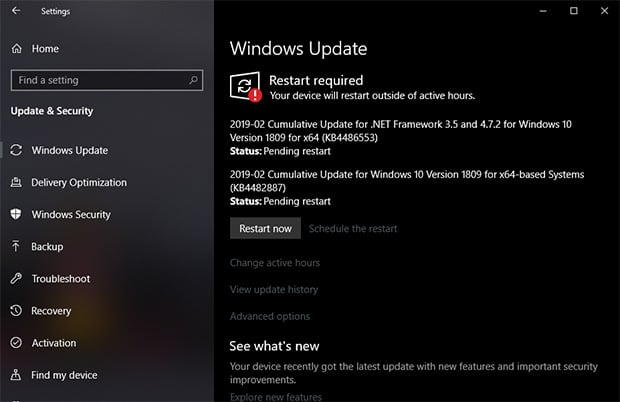Windows 10 Update Adds Performance Boosting Retpoline Support To Spectre Mitigation
Where computing is concerned, security should always be a major focus. In 2018, that focus almost seemed overwhelming, thanks in part to the fact that the infamous Spectre and Meltdown security vulnerabilities impacted so many end users and industries. And let's not forget then-Intel CEO Brian Krzanich during his CES keynote, where he wasted no time at all in addressing the problem, along with the company's commitment to fix it for its processors.
Over the course of the year, we were all left wondering if future patches would cripple system performance, but thankfully, the noticeable hits seem to be prevalent mostly in the enterprise. However, there is still some degradation for us regular folk running older CPUs, and for that reason, some may welcome the new Spectre v2 Windows problem-fixer "Retpoline" with a smile.
We first talked about Retpoline last October, when it was widely expected that the first major Windows release in 2019 would introduce it. Ideally, it would have been great to see it included in last year's October update, but that one had enough of its own issues to deal with. Fortunately, Microsoft decided to issue the update right now instead of waiting on its forthcoming April update. You can see the update in Windows Update currently, denoted as KB4482887 (as seen in the below shot).
It will take some time for those who know what they are doing to offer performance comparison test results on the before and after effects of Retpoline. However, considering the fact that the feature isn't being held off for the 19H1 build, it seems likely that potential side-effects are minimal. After some quick updates on our own machines, no differences could be felt - ultimately, a good sign.
Originally developed by Google, Reptonline has made its way to many different Linux distros, but Windows users have obviously had to wait a bit. As important as servers are, they tend to do more focused work than desktops, so testing there doesn't necessarily give us the full story with consumer hardware, making the extra internal (and external) beta testing important.
It's important to note that newer processors are going to be unaffected by this patch. Microsoft itself says that only Intel Broadwell chips and earlier will be impacted, while anything newer already has firmware in place to negate the need for this patch. Ultimately, it's those with older hardware who need all of the performance that their dated systems offer, so if you are running an older chip, you definitely want to give this patch a download.


